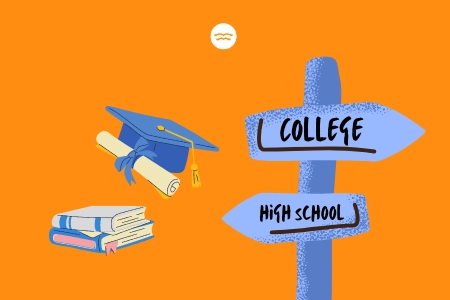Making the Transition From High School to College: Tips and Strategies

Getting ready to transition from high school to college can be both an exciting and daunting task. The change in the environment, added responsibilities, and the pressure to do well can be quite overwhelming. However, with the right preparation, you can make this transition as smooth as possible. Continue reading this insightful article for more tips and strategies to guide you through your journey.
Preparing for the Emotional Challenges of College Life
The emotional challenges that come with transitioning to college life can be immense. The fear of the unknown, coupled with the pressure to succeed, can lead to stress and anxiety. Seeking help from a high school college counselor can greatly ease this emotional burden. Having someone who understands the system and someone who can guide you through it can be of significant help.
In addition, effective preparation for college should also involve addressing potential homesickness and learning to live independently. Parents, teachers, and mentors can play a pivotal role in equipping students with the independence skills necessary for college life.
Building emotional resilience can also be of significant help in coping with college life. It’s essential to develop coping strategies for dealing with stress and challenges.
One overlooked aspect of the emotional transition to college life is dealing with failure. In college, you may experience failure or face obstacles that you weren’t prepared for.
Understanding that failure is a part of the learning process and recognizing that it doesn’t define your worth can help you navigate through these challenges and avoid getting stuck in a mindset of low vibration emotions. This resilience is a crucial element in becoming self-reliant and building emotional strength.
Understanding the Academic Differences between High School and College
College academic life is drastically different from high school. Not only is the level of study more challenging, but the learning environment and teaching methods also vary.
Unlike high school, where teachers often closely guide you, college demands that you become an independent learner. This includes managing your time effectively, initiating learning, completing assignments on time, and actively participating in lectures and discussions.
Academic rigor is also significantly higher in college. It’s not uncommon for students who performed exceptionally well in high school to struggle initially in college. Understanding this beforehand can help you adjust your expectations accordingly.
Last but not least, the range of courses offered in colleges is vast compared to high school. This requires a careful selection of courses that align with your career goals and interests.
Developing Effective Study Habits for College Success
One of the key factors that contribute to successful college life is having effective study habits. By developing and refining your study habits, you can significantly improve your academic performance.
A good study habit includes setting realistic study goals, creating a conducive study environment, and scheduling regular review sessions to reinforce what you have learned.
Note-taking is another crucial skill that can greatly enhance your academic performance in college. Remembering key points in lectures or seminars can help you better understand the course material and prepare for exams.
Regular practice and consistent dedication are also critical components of effective study habits. Remember, the goal in college is to learn and understand, not just memorize.
How to Effortlessly Balance Social Life and Studies in College
Many students struggle to strike a balance between their academic pursuits and social life in college, leading to undue pressure and stress.
One effective strategy to balance both academics and social life is to incorporate breaks into your study schedule for socializing and relaxation.
To ensure you are not overwhelmed with either academic or social commitments, it is essential to manage your time efficiently. This includes setting aside specific time for studying, leisure activities, and socializing.
Another useful tip is to engage in meaningful social activities that contribute to your overall well-being and happiness. This could be joining a club, participating in sports, or volunteering for a cause you are passionate about.
Altogether, by adequately preparing both emotionally and academically, and by developing good study habits, you can make your transition from high school to college less daunting. Remember, balance is the key to not only survive college but also thrive in it.


